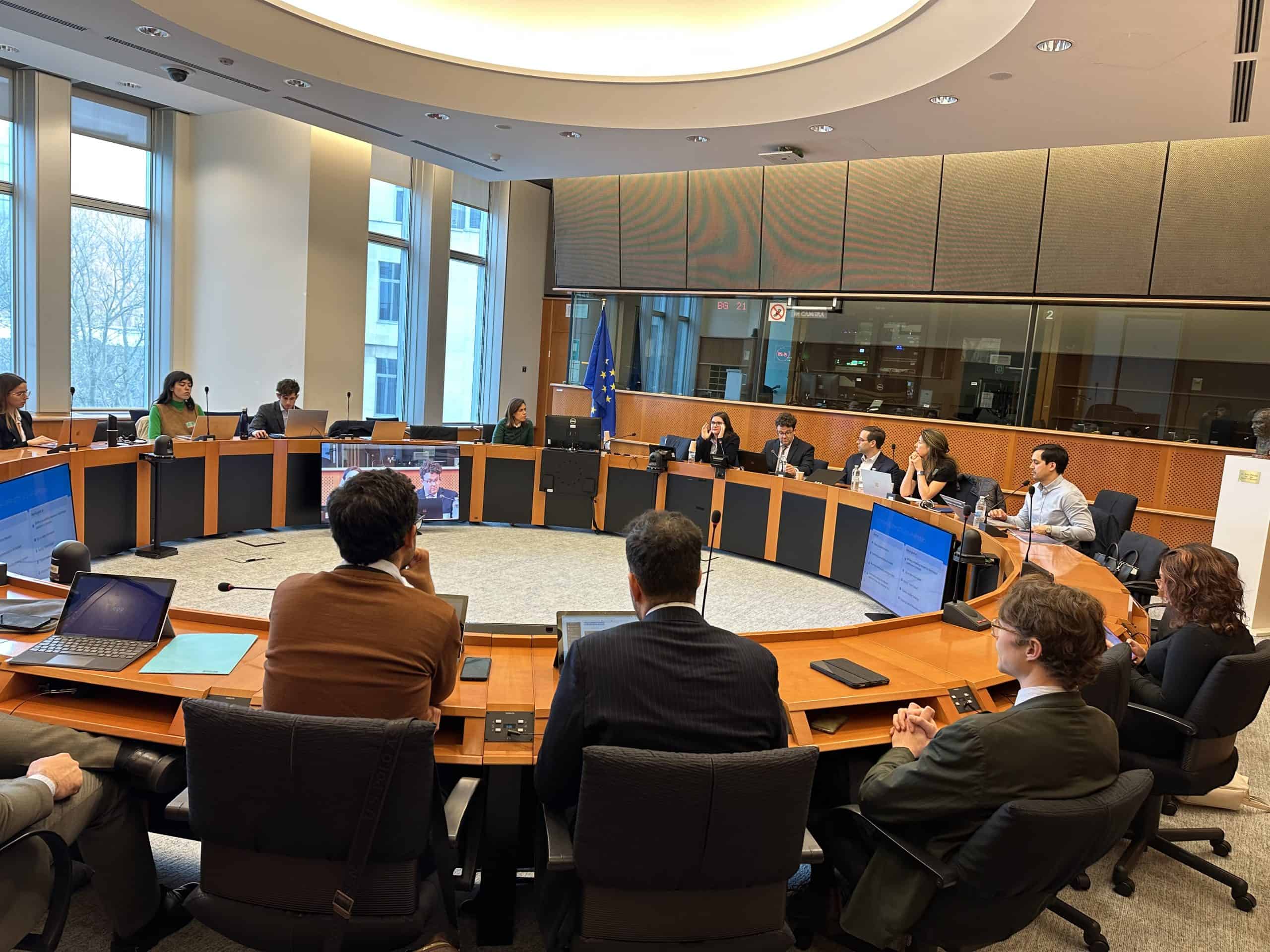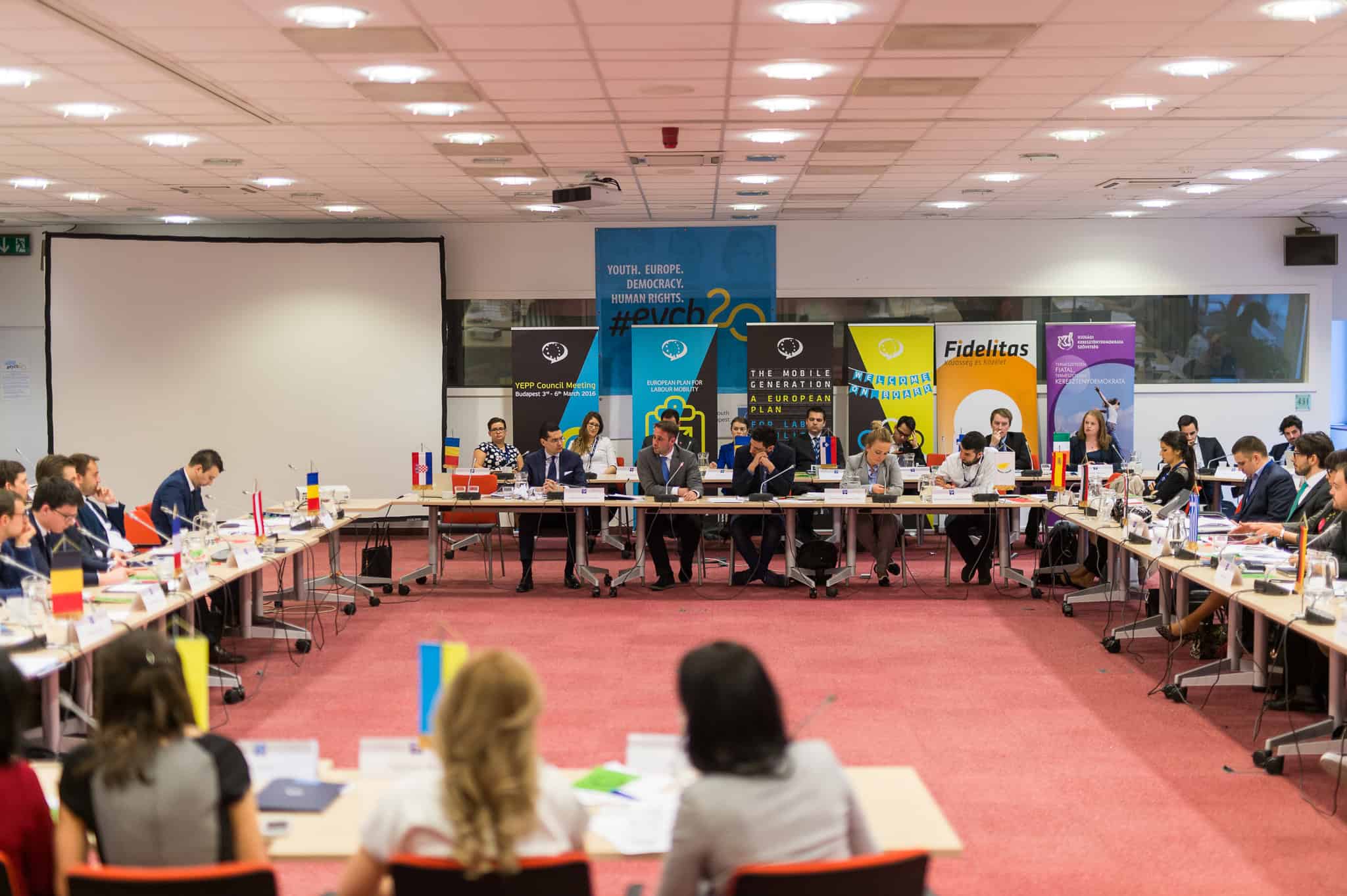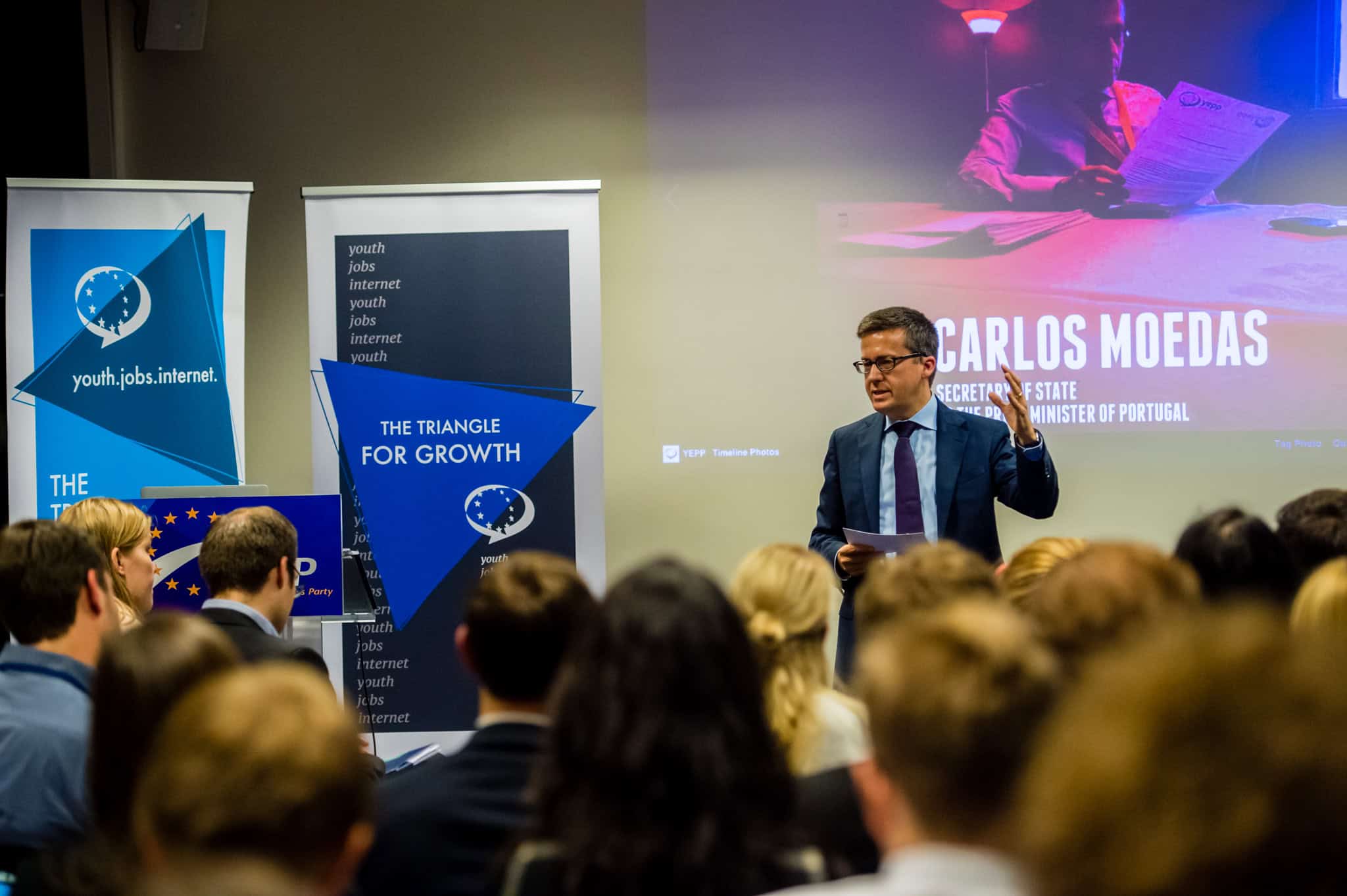YEPP sent 15 delegates to participate in a transatlantic youth conference at Princeton University, New Jersey from December 6th to 9th 2012.
It sought to expose academics to politicians and encourage the exchange of ideas among future global leaders. YEPP participants took part in all nine workings groups each of which produced a report or policy proposal. Our YEPP representatives firmly took the lead in these groups sharing their extensive experience with their counterparts. The reports produced will be published on behalf of Princeton University and presented to political channels in Washington D.C. and Brussels.
A summary of the working groups follow below:
1. “Entrepreneurship in Europe.” Chair: Sonya A. Hadzhieva
For the past couple of decades there has been a growth crisis in the EU. The levels of entrepreneurship in Europe as a whole have been almost twice as low compared to the ones in the United States. In general, the loss of confidence in the European Union pushes many young entrepreneurs out of Europe because most of them don’t believe they can be as successful in Europe as somewhere else, like US or China. Unfortunately, since the 50s Europe has not been very innovative player on the tech scene, for instance. In the era of the Euro crisis this issue is more relevant than ever since the failure, which is essential part of entrepreneurship, is the last thing that Europeans want to encounter. Despite the numerous EU funds available, there are still many restrictions which prevent young entrepreneurs from developing their business ideas in Europe. Unless the business environment changes fundamentally, the risk-aversion in the Old Continent might become detrimental. Our group will investigate the main reasons why entrepreneurs in Europe are at disadvantage, why they feel more risk-averse than their colleagues in US and try to construct a policy which will mitigate those constraints and improve the entrepreneurial climate in the European Union.
2. “Migration and Mobility in Europe.” Chair: Roxana C. Turcanu
Some of the questions we will address: “How do Europeans take advantage of their right to travel anywhere within the E.U.? Working in a EU country is a right that virtually anyone in the EU can take advantage of. Nevertheless, is this really the case? What problems do immigrants face when making such a decision? Given the fact that the number of foreign workers in western Europe has doubled over the past few decades, should this be viewed as a problem? What happens to eastern Europeans who get assimilated into the western culture? What policy proposals could help improve the status of the Roma?
3. “Economic Impact of High Level Corruption.” Chair: Martina Uccioli
“Four out of five EU citizens regard corruption as a major problem in their State. It is not only a problem of former communist states, where historical political “oligarchy” has made corruption easier, it is something that affects the entire Union: the estimated economic cost of corruption in the EU is around €120 billion per year, 1% of the EU GDP. Of particular concern it is the high level corruption, and how corruption-led political choices can influence economic results in the that tackle the highest levels of corruption, that of senior public officials and political parties, with the creation of mechanisms to deter it and render it more difficult to put in practice.”
4. “Europe’s Education Quality and Its Economic Performance.” Chair: Parinda Wanitwat
This group will, first and foremost, explore issues concerning education quality in European public and private education institutions, the role that governments play into this, and the correlation between education quality and economic performance. Where European countries are in the world, according to PISA assessment? What is it that Europe get right in education? Some European countries have more successful model of education system than others. Are these models applicable throughout Europe and beyond? What will it take to do so, economically, politically, socially and culturally? How could improved education systems in Europe lead to better economic outcome?
5. “EU-US Security: Assessment and Relations.” Chair: Marcus Siegmund
This working group will discuss the recently-issued security strategies by the United States and prominent countries in the European Union. The group will highlight the newest provisions of these documents that focus on terrorism, cyber attacks, and environmental damage. Furthermore, the group will assess NATO’s interaction in the security relationship between the EU and the US as well as the future of this relationship and its dynamic changes in light of the most recent EU-US summits.
6. “Future of the European Air Quality.” Chair: Réka Zempleni
Even though there has been legislation concerning the protection of the air quality in the EU that has led to the decline of many pollutants in the past decade, the expected results have not been delivered. As the EEA Air Quality Report 2012 points out, “PM (particulate matter) and Ozone are Europe’s most problematic pollutants in terms of harm to human health”. The focus of this committee will be on how to preserve the public’s health from concerns arising due to inadequate air quality. How should air pollutants be reduced more effectively? Should the policies include measures to prevent further harm or to resolve the current situation?
7. “Monetary Crisis: the Future of the Euro.” Chair: Su Fen Goh
Asymmetric responses to asymmetric shocks – can an entity as diverse as the EU truly mount a one-size-fits-all response to each country’s monetary woes? This problem has quietly existed for years, but the recent sovereign debt crisis and its implications on political and economic power in the EU has turned this into one that we can no longer ignore.
8. “Perspectives of the EU countries that are not in Euro zone.” Chair: Revant Nayar
With regard to the accession of the Euro-zone, Lithuania and Latvia are the only two EU countries that intend to join in the near future. Both intend to fulfil the convergence criteria by the end of this year, and acquire the euro by January 2014. How viable is the prospect of euro-zone accession for Lithuania and Latvia, both from the perspective of the Euro-zone and of these nations, in the context of the Euro debt crisis? Should there be flexibility in terms of the convergence criteria for Lithuania and Latvia, which may or may not fulfil all the criteria by the end of next year? Is it in their interests to join, or will the current crisis rag them down?
9. “EU membership: is it worth it?” Chair: Kayla Lawrence
What are the effects of EU membership for recently joined countries? What are the economic, cultural, and political implications of their membership? How can their membership be viewed in light of the recent economic crisis?







